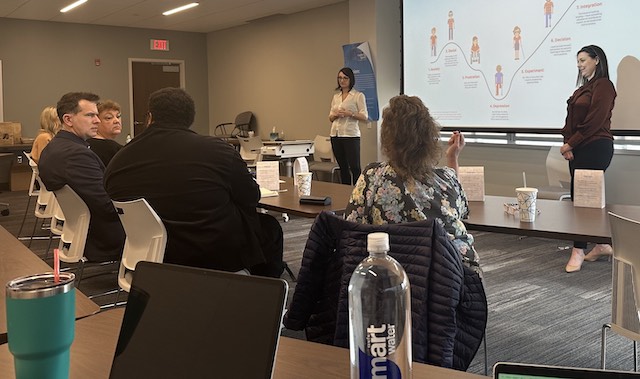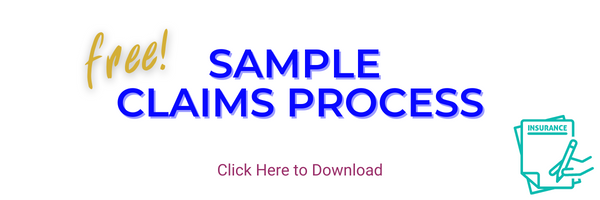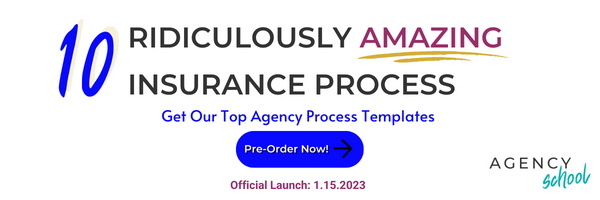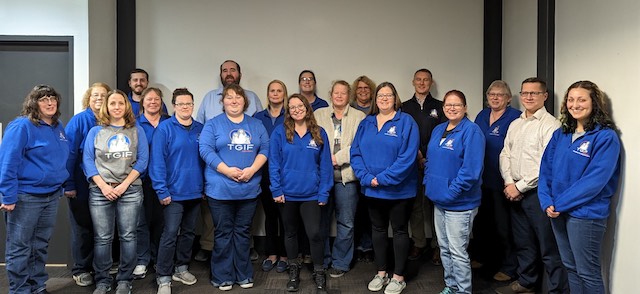Claims, no one loves them, but they are the reason we exist. Many insurance agencies don’t have a strong claims process.
Claims are the only time your clients use your product. This is literally where the rubber meets the road – the moment where the policy you crafted and the client accepted comes into play. Claims are a great time to earn goodwill or destroy trust.
A great insurance claims process will be more than a process but rather a stellar claims experience for your client. In this blog, we will break down the steps to ensuring your clients are delighted at the time of a claim.

Confidence… thrives on honesty, on honor, on the sacredness of obligations, on faithful protection and on unselfish performance. Without them it cannot live. ~ Franklin D. Roosevelt
Insurance Claims Process Gone Wrong!
Too many agencies wing their claims process. Someone calls in, it goes to the carrier, and then we wait and see. Claims are the time when we can shine as the time your client is using your product. It’s critical that your agency has a documented and organized process for claims.
- Documentation of Claims: It sounds silly, but getting claims documentation in your management system is critical. When a claim is documented, it can be followed up with.
- Who Takes Claims: Some agencies have a claims specialist, and the claims go to the account manager in other agencies. It’s a great opportunity to identify who handles and follows up with claims.
- The Client Doesn’t Have Claims Experience: We may take claims daily, but most clients have minimal claims experience. It’s a great reminder that we need to have empathy and understand that claims can be overwhelming for clients.
- Identifying the Best Claims Process: We will review this later in this blog however some agencies take the information and report it to the company, and some agencies do a warm transfer to the carrier you have to identify the best and consistent process for your team and carriers.
- Claims Process Follow-Up: Claims can go sideways quickly when your agency has a follow-up process, you can catch missed expectations and work to remedy them.
“It is not the employer who pays the wages. Employers only handle the money… It is the customer who pays the wages.” – Henry Ford

Claims are something that your agency needs to practice and perfect so your clients leave delighted, and you earn referrals and stay far away from bad online reviews.
Getting Proactive Helps Your Insurance Claims Process
I will make a shameless plug here for our renewal review process. A great way to minimize claims frustrations is to be proactive at renewal with renewal reviews.
Most challenges in claims come from missed expectations. Clients assume they have “full coverage” (note I hate those words – there is no such thing as you can never be fully covered from all potential risks). When you can review policies with clients, we solve the following issues:
- Update contact information – in the event of a claim, if you can’t reach someone, it’s an issue!
- Review coverages – clients know what they have and have the opportunity to increase coverage based on your recommendations
- Discuss potential claims scenarios – when you do renewal review calls, clients will ask questions that are on their mind. Clarifying how insurance works is always a win
Claims expectations are often missed due to a lack of understanding of their policy. Remember, when someone binds coverage 4 years prior, they will most likely not remember what coverages they selected (and remember their lives and businesses may have changed!).
Insurance Claims Process To Delight Your Clients
In this section, we will be reviewing steps to a ridiculously amazing insurance claims process. Just a reminder, we have this and much more in our 10 Agency Processes course where you can get this process to customize for your team!
Let’s start by clearly defining the objective of a great claims process:
Objective: To counsel the clients of the agency during their claim and become their advocate when needed. We know a positive claims experience can generate referrals, whereas a negative claims experience can deter new business. Filing a claim is the only time a client can use the product the agency has provided, and because of this, we need to be sure we are paying attention to clients during this time.

Inbound Insurance Claims Process
In this section, we will review when a client calls an agency how to handle the claim (with insurance claims scripts!)
Inbound Claims Script
- First, before we begin, are you and all (passengers/family members) ok?
- Are you in a safe location to talk?
- I’m glad you called us. As your insurance agent, I want to guide you on the most efficient and effective way to get your claim started. This means the carrier will need to take an incident report from you. I would hate for you to have to repeat yourself twice. We can help you start that process, but first, can you give a brief overview of what happened so we can get you to the right place?
- Claim is small, and the client should be counseled not to report it: Ok, thank you. It looks like your current deductible is $XXX. Based on what you describe, what do you think the cost to repair would be? I’d hate to see you log a claim if the difference was minimal, and then you would have a claim on your insurance record.
- Claim is larger, and the client needs to report it: The best course of action is for me to connect you with the carrier so they can get your incident report. I will stay on the line with you to ensure you are connected and make the introduction. From there, they will take your statement, and you will be assigned an adjuster. In a few days, I’ll call back to check in with you to ensure everything is moving along. I will hold you briefly to get the carrier’s claim team on the line.
- Warm transfer the call to the carrier
We recommend that you do not get involved in what is covered/not covered at this point unless it is obvious (For example – they don’t have rental car reimbursement, but they want a rental car) allow the carrier to review the situation and their policy.
When you follow up in a few days and get any feedback, review the carrier’s notes and the policy just to confirm the loss is not covered. If it’s a gray area, escalate the scenario to a team leader.
You need to make sure you follow up in 3 days to confirm the client has heard from the claims adjuster. If they have not, it’s time to get involved!
Outbound Insurance Claims Process
We recommend you go to each carrier’s website and find claims that were reported directly to the carrier. This will help the client understand the carrier and your agency’s roles!
- Daily Obtain a list of claims
- Identify who can email/fax them to us
- Identify which carriers we need to log in to and obtain claims
- Contact the client to make sure they are ok and inform them if they do not hear from a claims adjuster in 48 hours to contact the agency
- Send a follow-up email, so the client has your contact information
- Set a suspense to follow up in 72 hours
Script:
Hello, this is NAME from AGENCY NAME. I’m calling because I understand you recently had a claim. We first want to make sure you are ok? Next, have you heard from a claims adjuster yet?
- If no – look at the claim’s status in the carrier system, and call the company to find out the status. If no adjuster is assigned in 48 hours, it needs to be escalated to Ben and Jen
- If yes – great we want to let you know that we are here for you in case you need anything on your claim.
Dear NAME,
We are sorry to hear about your recent claim. Rest assured, if you need anything, we are here for you. If you don’t hear from your claims adjuster in the next 48 hours, please call or email me so we can follow up on your behalf. If you need anything, please call us so we can be of assistance.
AGENT
- Suspense out for 30 days to send the claims follow-up
Post Insurance Claims Process Survey
If you want to go the extra mile think about sending a survey on their experience. When you send a survey you can:
- Have clear feedback for your carriers
- Identify any missed expectations and work to reach out to the client
- Boast your claims rating with prospects.
Here is a sample of an email you can send to clients asking for their feedback. We recommend using Survey Monkey to create a quick 10 questions claims process quiz.
Claims Survey Email
Dear NAME,
It’s our goal to provide you with exceptional service on all of your insurance needs. We understand you had a claim recently. While these situations are never pleasant, we want to ensure you are well taken care of by our team and your carrier. Would you mind completing this brief survey on your experience?
SURVEY LINK
AGENT NAME
Insurance Claims Process Conclusion
Your team needs a clear insurance claims process. We have found that most service team members want to be told clearly what to do to meet and match your agency’s expectations. When you can detail your agency’s process, the team can execute your client experience.
Once you have a process, the great news is you can track it and coach the team on sticky points. This could be pain points from your client survey or difficult scenarios your team may face. Your process is the starting point training on it is the next step.
One more note: if the claim was handled successfully, it’s a great opportunity to ask for an online review or referral!






